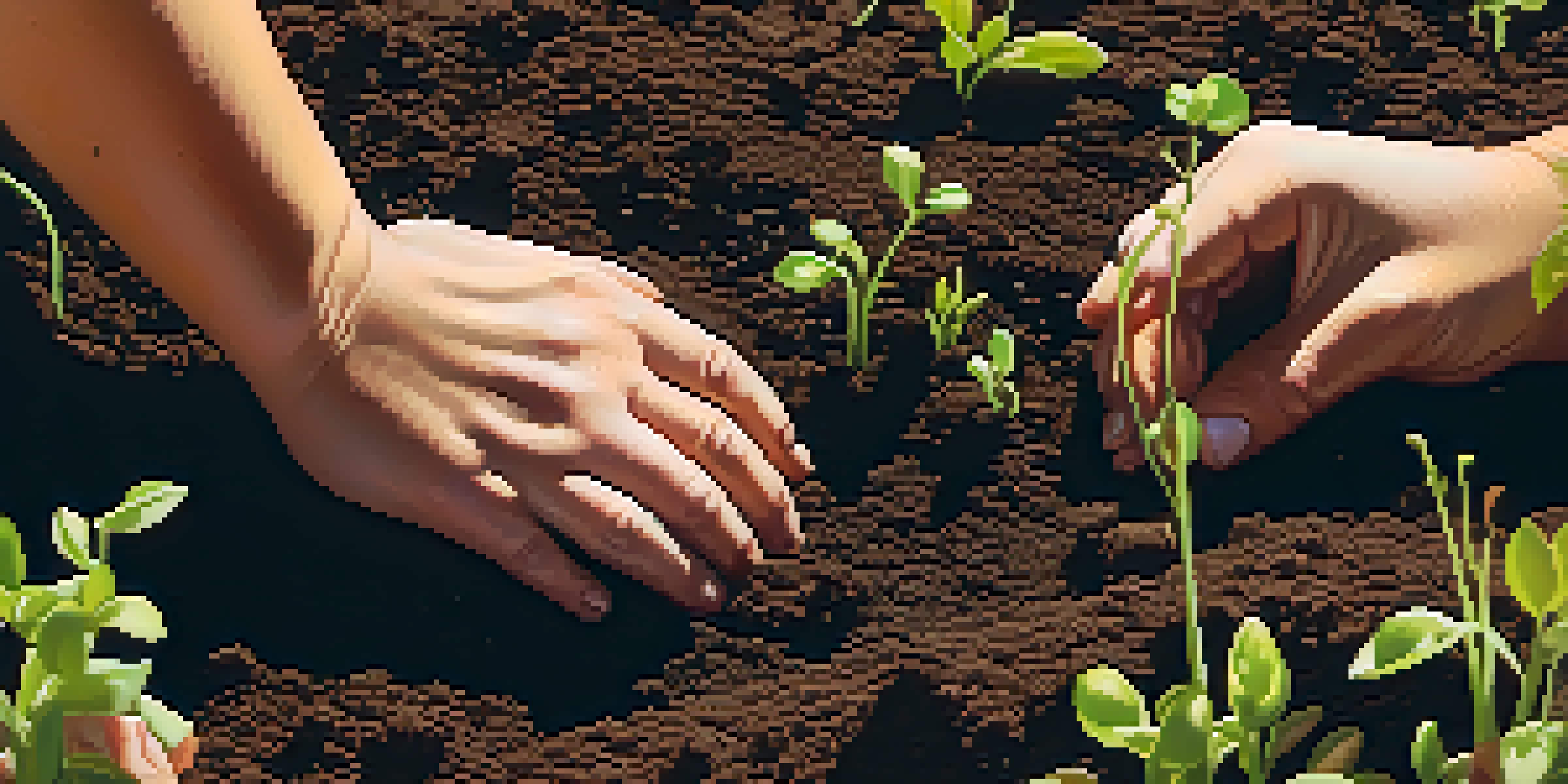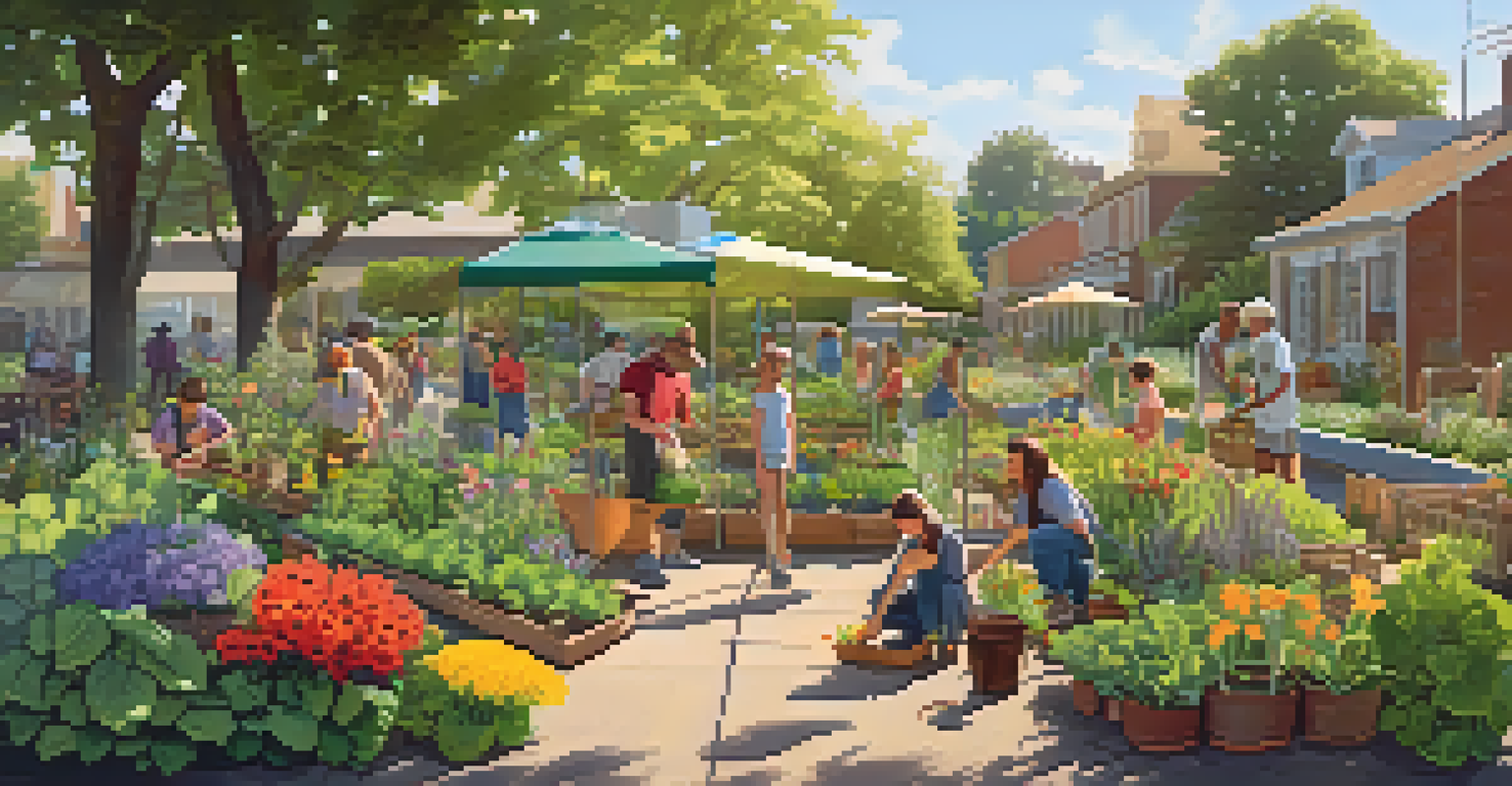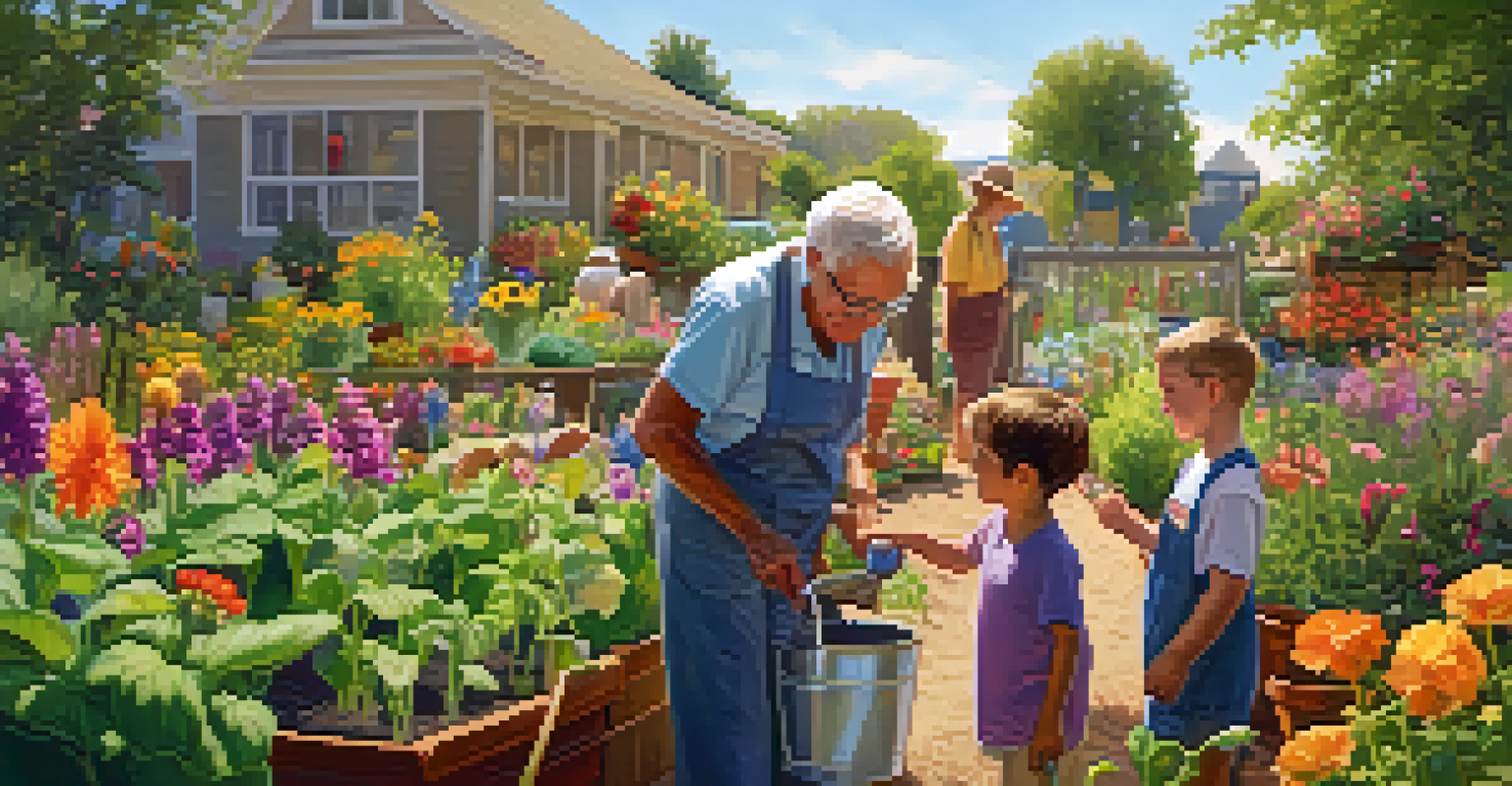The Mental Wellness Boost from Community Gardening Activities

Community Gardening: A Growing Trend for Mental Health
Community gardening has become a popular activity, and for good reason. It creates a space where individuals can come together, nurture plants, and build relationships. This shared experience not only beautifies neighborhoods but also cultivates a sense of belonging, which is essential for mental wellness.
Gardening adds years to your life and life to your years.
As people dig their hands into the soil, they often find a sense of peace and tranquility. The act of gardening itself can be meditative, allowing participants to escape the chaos of daily life. With each seed planted, gardeners can reap emotional benefits that go far beyond the harvest.
In a world where loneliness is increasingly common, community gardens serve as social hubs. They encourage interaction and collaboration, helping participants to form friendships and support networks that can significantly improve mental health.
How Gardening Reduces Stress and Anxiety
Gardening has been shown to lower levels of cortisol, the stress hormone. Engaging with nature, whether planting flowers or growing vegetables, can be a therapeutic escape. This natural distraction allows individuals to focus on the task at hand rather than their worries, promoting a calmer state of mind.

The rhythmic motions of digging, planting, and watering can also have a grounding effect. These repetitive activities allow thoughts to settle, promoting mindfulness—a state where individuals can fully experience the present moment. This can be particularly beneficial for those dealing with anxiety.
Gardening Boosts Mental Health
Community gardening fosters social connections and emotional well-being, creating a supportive environment for mental wellness.
Additionally, spending time outdoors has been linked with improved mood and overall well-being. Exposure to sunlight increases serotonin levels, which can enhance feelings of happiness. Thus, community gardening not only nurtures plants but also nurtures the gardeners’ mental states.
Building Connections Through Shared Gardening Efforts
One of the most enriching aspects of community gardening is the opportunity it provides for social interaction. Gardeners often work side by side, sharing tips and experiences, which fosters a sense of camaraderie. This interaction is vital, as social connections are key to maintaining good mental health.
To plant a garden is to believe in tomorrow.
In these shared spaces, individuals from different backgrounds come together with a common goal. This diversity enriches the experience, allowing for the exchange of ideas and cultural practices. It’s a wonderful way to break down barriers and promote understanding among community members.
Moreover, gardening can be intergenerational, bringing together people of all ages. This mix of experience and youthful energy can create a vibrant learning environment, where wisdom is shared and new friendships blossom, strengthening community bonds.
The Role of Nature in Promoting Mental Clarity
Nature has an incredible ability to rejuvenate our minds. Studies show that spending time in green spaces can enhance cognitive function and creativity. Community gardens, filled with colorful plants and textures, stimulate the senses, providing a refreshing break from the hustle and bustle of urban life.
When engaged in gardening, individuals often report a boost in their problem-solving skills and creative thinking. This is likely due to the calming effects of nature, which allow the mind to wander and explore new ideas. The garden becomes not just a place for growing plants, but also a space for personal growth.
Nature Reduces Stress Levels
Engaging with nature through gardening helps lower stress hormones and promotes mindfulness, leading to a calmer state of mind.
Additionally, the beauty of nature can inspire gratitude and a sense of wonder. When we take a moment to appreciate the intricacies of a blooming flower or the simplicity of a ripe tomato, we cultivate a positive mindset that can counteract negative thoughts and feelings.
Fostering Resilience Through Gardening Challenges
Gardening is not always a smooth process. Plants may not grow as expected, pests can invade, and weather conditions can be unpredictable. However, these challenges can teach valuable lessons in resilience and adaptability, essential skills for maintaining mental health.
When faced with setbacks in the garden, individuals learn to problem-solve and persevere. This mirrors life’s challenges, helping gardeners build a stronger mindset as they navigate through difficulties. Each small success in the garden reinforces the idea that persistence pays off.
Moreover, overcoming these challenges together can strengthen community ties. Sharing strategies and solutions with fellow gardeners fosters collaboration and support, creating an environment where everyone encourages one another to keep trying, no matter the odds.
Volunteering: A Pathway to Purpose and Connection
Many community gardens rely on volunteers, providing an excellent opportunity to give back. Volunteering can instill a sense of purpose, which is crucial for mental wellness. When individuals feel they are contributing to a greater cause, it can enhance their self-esteem and overall satisfaction with life.
Engaging in volunteer work within a garden setting allows individuals to connect with others who share similar values. This connection can lead to lasting friendships and a supportive network, helping to combat feelings of isolation. It’s a win-win for both the garden and the gardener.
Volunteering Builds Purpose
Volunteering in community gardens enhances self-esteem and fosters connections, contributing to a sense of purpose and fulfillment.
Additionally, the act of nurturing plants can be incredibly fulfilling. Watching something grow and flourish as a result of one’s hard work can boost feelings of accomplishment. This sense of achievement is a powerful antidote to the stressors of everyday life.
Creating a Sustainable Environment for Well-Being
Community gardening promotes not just personal wellness but also environmental sustainability. By growing food locally, community gardens reduce the need for transportation, cutting down on carbon footprints. This connection to sustainability can create a sense of pride and responsibility among participants.
Furthermore, gardens serve as a habitat for various species, enhancing biodiversity. When individuals engage in environmentally friendly practices, they contribute to the health of their local ecosystem. This awareness can foster a greater appreciation for nature, translating into improved mental well-being.

As participants cultivate their gardens, they also cultivate a sense of stewardship for the planet. This can lead to a more meaningful connection with the environment, promoting a holistic view of health that encompasses both mental wellness and ecological responsibility.